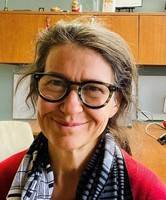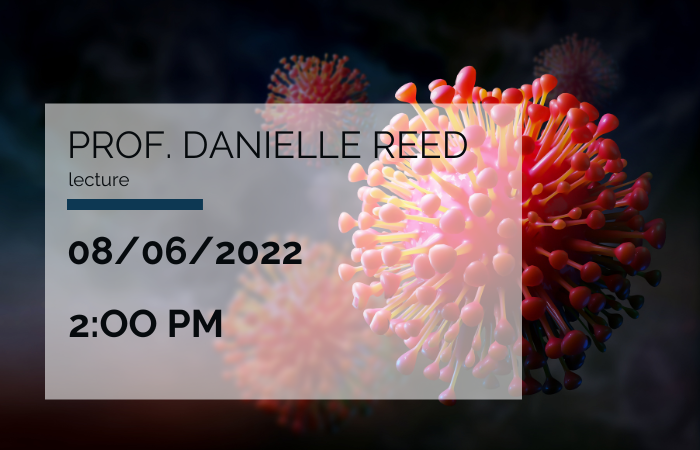"Taste, Smell, and COVID-19" – lecture by Prof. Danielle Reed
30.05.2022
An open lecture by Prof. Danielle Reed entitled Taste, Smell, and COVID-19 will be held on 8th of June at 2:00 p.m. The event will be held in a hybrid form: in the auditorium of the Intercollegiate Faculty of Biotechnology, UG and MUG and online.
Lecture description: Our sense of taste and smell are often taken for granted but they are important sensory systems that not only help us stay safe but also appreciate and enjoy life. Taste and smell loss occurs as a natural process of aging but can also be symptoms of neurodegenerative diseases like Parkinson’s or Alzheimer’s, or can arise because of cancer treatments. Most recently, taste and smell loss is a cardinal feature of some of the SARS-CoV2 variants that cause COVID-19. Prof. Danielle Reed will explore that subject during her lecture, and the audience will have a chance to test their own sense of taste and smell. We invite you to the lecture on June 8 (Wednesday) at 14:00 (CEST) to the auditorium of the Intercollegiate Faculty of Biotechnology, UG and MUG, ul. Abrahama 58, Gdańsk. A link to the online lecture can be found at the website.

Biography: Prof. Danielle Reed is an expert on the biology of taste and smell and person-to-person differences in perception that arise from genetic variation in receptor genes. Prof. Reed is the Associate Director of the Monell Chemical Senses Center in Philadelphia in the USA, which is a world leader in chemosensory research, which is research on the perception of chemicals and the processing of this information. Danielle Reed is also on the leadership team of the Global Consortium of Chemosensory Research (GCCR), which brings together people who conduct studies all over the world to assess relationships between respiratory illnesses (e.g. COVID-19) and their effects on smell and taste, and she is the President of the Association of Chemoreception Sciences (AChemS), an international organization of scientists who study taste and smell. Prof. Reed often gives webinars and talks for professionals and appears in public media such as the press (e.g. The New York Times Magazine), TV, and radio programs to share her knowledge and experience on chemosensation in humans with the general public.
